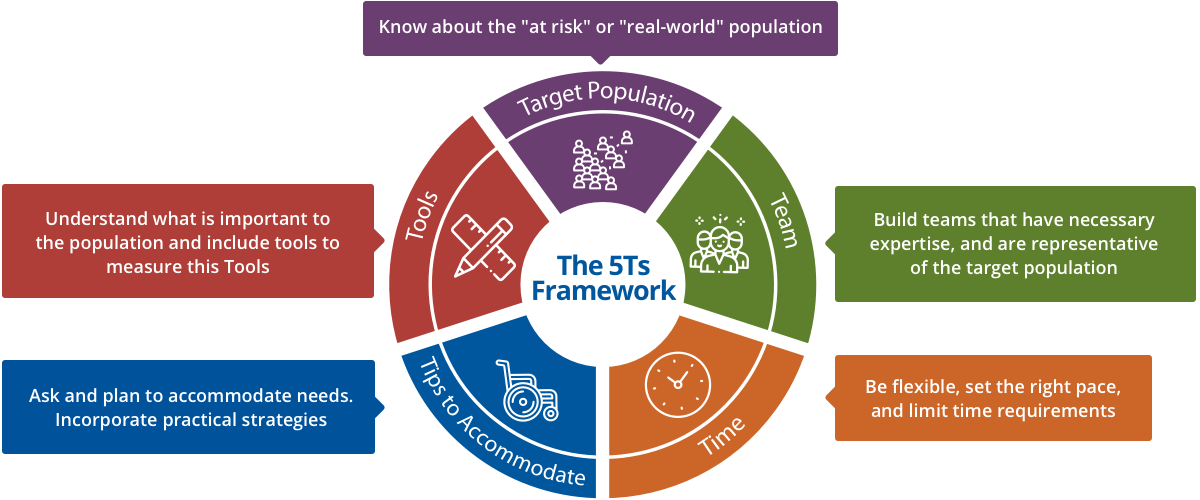
The NIH “Inclusion Across the Lifespan” policy prohibits age-based exclusions without scientific justification. However, following this policy can be challenging. To better understand the barriers to inclusion across the lifespan we conducted one-on-one interviews and community engagement studios with over 70 participants representing researchers, research staff, and older adults.
- From researchers, we heard about challenges related to inflexible study designs that were considered to be too burdensome for some older adults. Rather than accommodate functional or cognitive limitations, researchers often used indications of these problems (e.g., use of a wheelchair, having to repeat instructions) as reasons not to enroll older adults.
- Research staff reported that while they play a pivotal role in inclusion, they often lack training in geriatrics, have learned to recruit older adults through trial and error, and opportunities to learn from others’ success are limited.
- Older adults described being highly motivated to participate in research but were also concerned about the potential inconveniences of participating. They expressed the desire for study teams to address their personal motivations for participating and make accommodations to reduce inconveniences.
